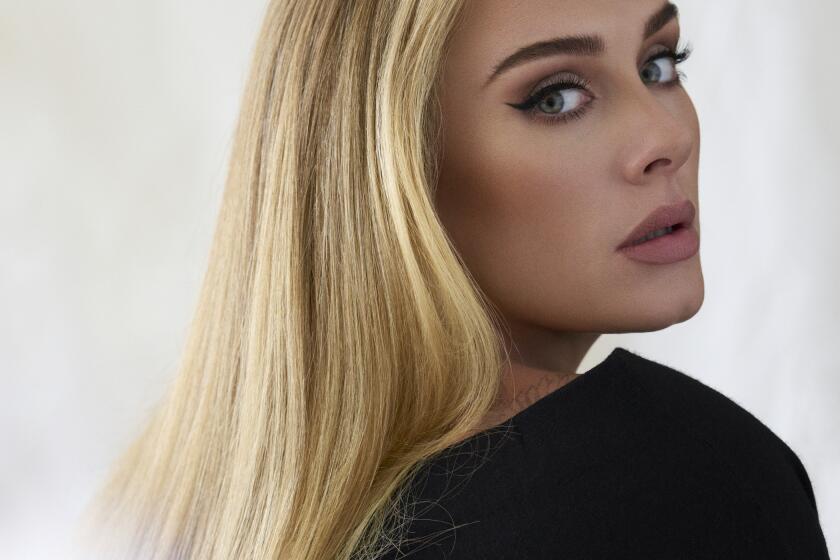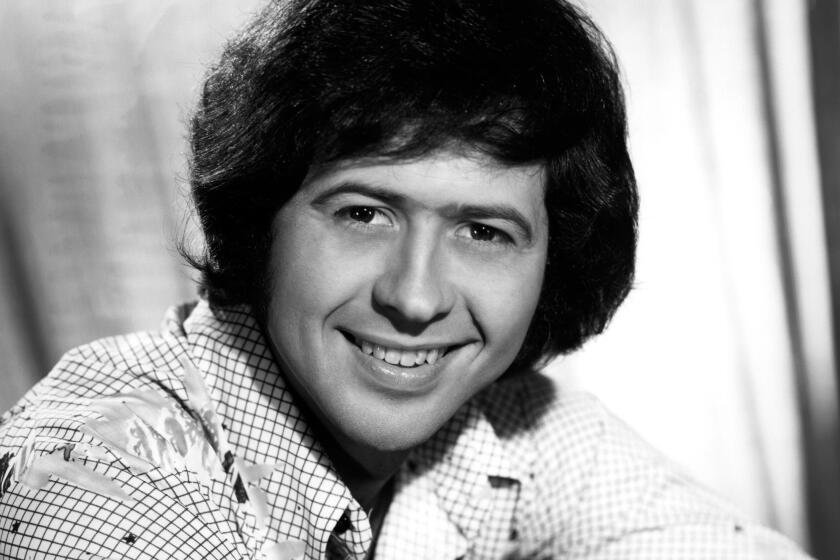Disco, dembow and discarded bras: Backstage with Latin music’s next global superstar
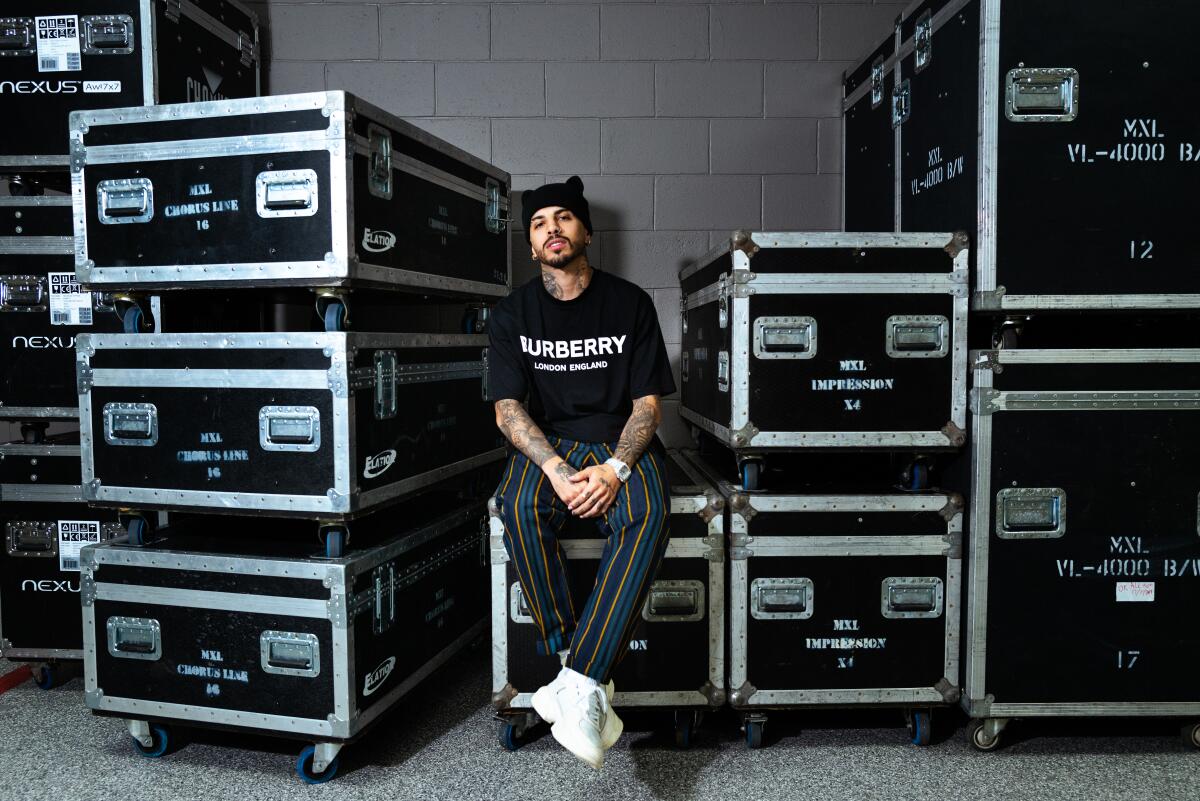
SAN JUAN, Puerto Rico — It started with a computerized bassline on his laptop. Then a whimsical trill of falsetto. Ooh ooh ooh ooh ooh.
It was then that 28-year-old Rauw Alejandro knew the kind of beat he needed for his song “Todo de Ti,” or “Everything About You.” Dembow, the reggaeton riddim that’s become a staple of the Latin pop charts, was too lax. A plug-and-play trap beat was too ambient.
Alejandro needed something with more verve, more sparkle — perhaps a classic sound he first discovered on vinyl, collecting dust in a crate somewhere inside his father’s den. He wasn’t sure it would work in Spanish. But with its crisp, disco-revival beat, “Todo de Ti” rocketed to No. 3 on the Billboard Global 200 chart, went six times platinum in the U.S. and gave Alejandro permission to live out his ‘70s roller-boogie dreams in the accompanying music video.
After the long pandemic, he said, his rationale was simple: “There aren’t enough artists dancing in the reggaeton world or making R&B music in Spanish. So why don’t I do both?”

Alejandro, a scholar of both Daddy Yankee and Michael Jackson, took a giant leap of faith this year when he introduced retro funk and dance elements in his sophomore LP, “Vice Versa.” The album debuted at No. 1 on the Billboard Top Latin Albums chart, and now he’s headlining a sold-out world tour across the U.S., Spain and the Dominican Republic.
On Thursday night in Las Vegas, he’s nominated for three Latin Grammy Awards: “Todo de Ti” is up for both record and song of the year, while “Tattoo (Remix),” his single with Colombian pop singer Camilo, is nominated for urban fusion/performance. (Alejandro was nominated for best new artist in 2020, losing to Mike Bahía.)
“Awards are dope,” he said. “Especially for my team, they deserve them. But I don’t like getting caught up in that competition, the controversy when someone wins and someone loses. That’s not why I do music.”
As if there wasn’t already enough excitement surrounding him, Alejandro spent the past weekend at the LOS40 Music Awards in Palma de Mallorca, where he walked hand in hand down the red carpet with his new girlfriend, Spanish music star Rosalía.
“Power couple vibes,” he said, flashing a smile.
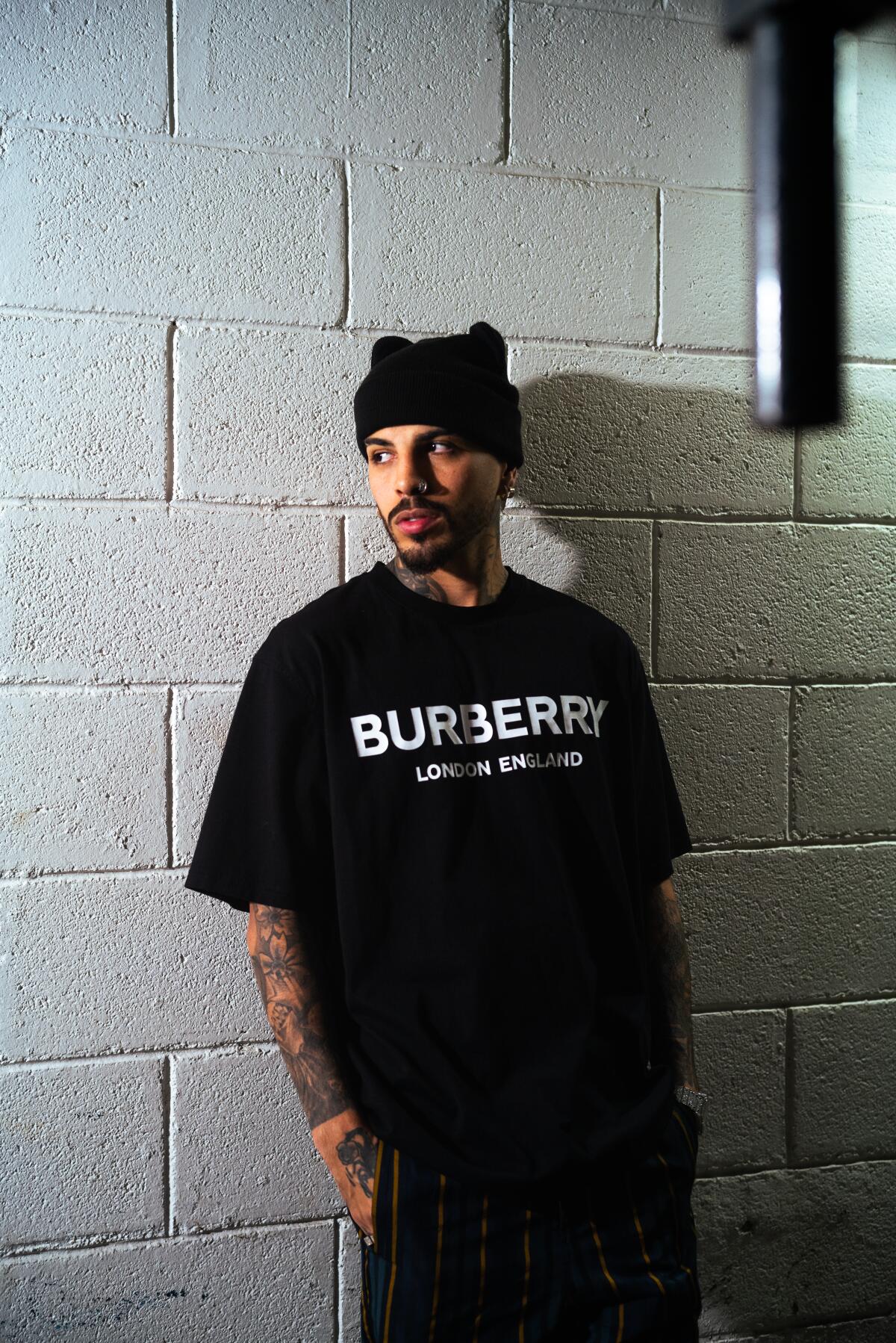
I met Alejandro last month in his hometown of San Juan, Puerto Rico, where he sold out four consecutive nights at the city’s Coliseo de Puerto Rico, which seats 18,500. Clad in a black Burberry tee and striped trousers, he perused a box of doughnuts in the green room and explained why he renamed his globetrotting jaunt “The Bra and Panties Tour.”
The frenzy started after a woman flung a white cotton bra at Alejandro during a July show in Elizabeth, N.J. Five months later, his crew claims to have amassed a department store’s worth of undergarments over the course of his arena tour. Some are adorned with cutesy hearts scrawled in Sharpie pen; others include names, phone numbers and unquotable messages.
By year’s end, he vows to repurpose their offerings into an art installation of sorts. “I’ll take them to the laundry first,” he assured me. “People were pulling bras off their bodies!”
On Alejandro’s opening night at the Coliseo, few women were so brazen as to toss their intimates onstage. (The official Los Angeles Times count: two bras and a thong.)
Perhaps it was out of respect for his mother, María Ruiz, who stood excitedly in the front row. Or perhaps they were too caught up in Alejandro’s adrenalized performance: nearly three hours of strutting, sprinting and seductively body rolling across the stage, his tattooed physique glistening with sweat, as he led a mixed-gender dance crew through some steamy perreo — a provocative dance and a national pastime. To sell out the “Choli” once is no small feat to any Puerto Rican, but to do it four times begged multiple rounds of this chant across the stadium: “¡Yo soy boricua, pa’ qué tu lo sepas!” (“I’m Puerto Rican, so that you know!”)
“My people motivate me,” he said of his fellow boricuas. “My family motivates me. I want my family to be taken care of, and that makes me work harder. I like feeling responsible.”
More than just gossip about the toll of her divorce, the singer’s fourth album, ‘30,’ offers deep thoughts on love’s causes and consequences.
Born Raúl Alejandro Ocasio Ruiz, he was raised just east of San Juan, in the municipality of Carolina. Alejandro’s mom, a choir singer and now retired government administrator, works on occasion as his Puerto Rico-based assistant. His father, Raúl Ocasio, a land surveyor by trade, is also a skilled guitar player from Brooklyn; he raised his children on Elvis Presley and James Brown records, along with those of the salsa supergroup Fania All-Stars.
“For my dad it wasn’t about genres; it was about creating moods,” said Alejandro. “At home we listened to American soul, boleros, salsa, merengue. Sunday was church, then Monday was for rock ‘n’ roll.”
Like countless other Puerto Rican millennials, Alejandro was fluent in the local lingo of reggaeton. But American R&B “is my essence,” he said. “I like the sexiness of R&B, the slow jams. When I do music, I start with the piano — puro R&B. Then I bring in the reggaeton, the trap, the dance.”
Alejandro took up singing and dancing alongside Francis Díaz, his best friend since kindergarten and now his full-time personal assistant. Díaz introduces himself as Hueso, or Bone, a nickname bestowed on him by classmates who teased him for his slim build. Alejandro, he says, got the less deprecating nickname.
“‘Rauw’ is just an easier way for a kid to say Raúl,” said Díaz. “And look at that; he got a stage name out of it.”
For talent shows at their Catholic high school, the two lifted choreography from 2000s dance flicks like “Step Up” and “Stomp the Yard” to emulate their heroes, artists like Justin Timberlake, Usher and Chris Brown. “Of course there were religious songs,” said Díaz — which left pelvic thrusts out of the equation.
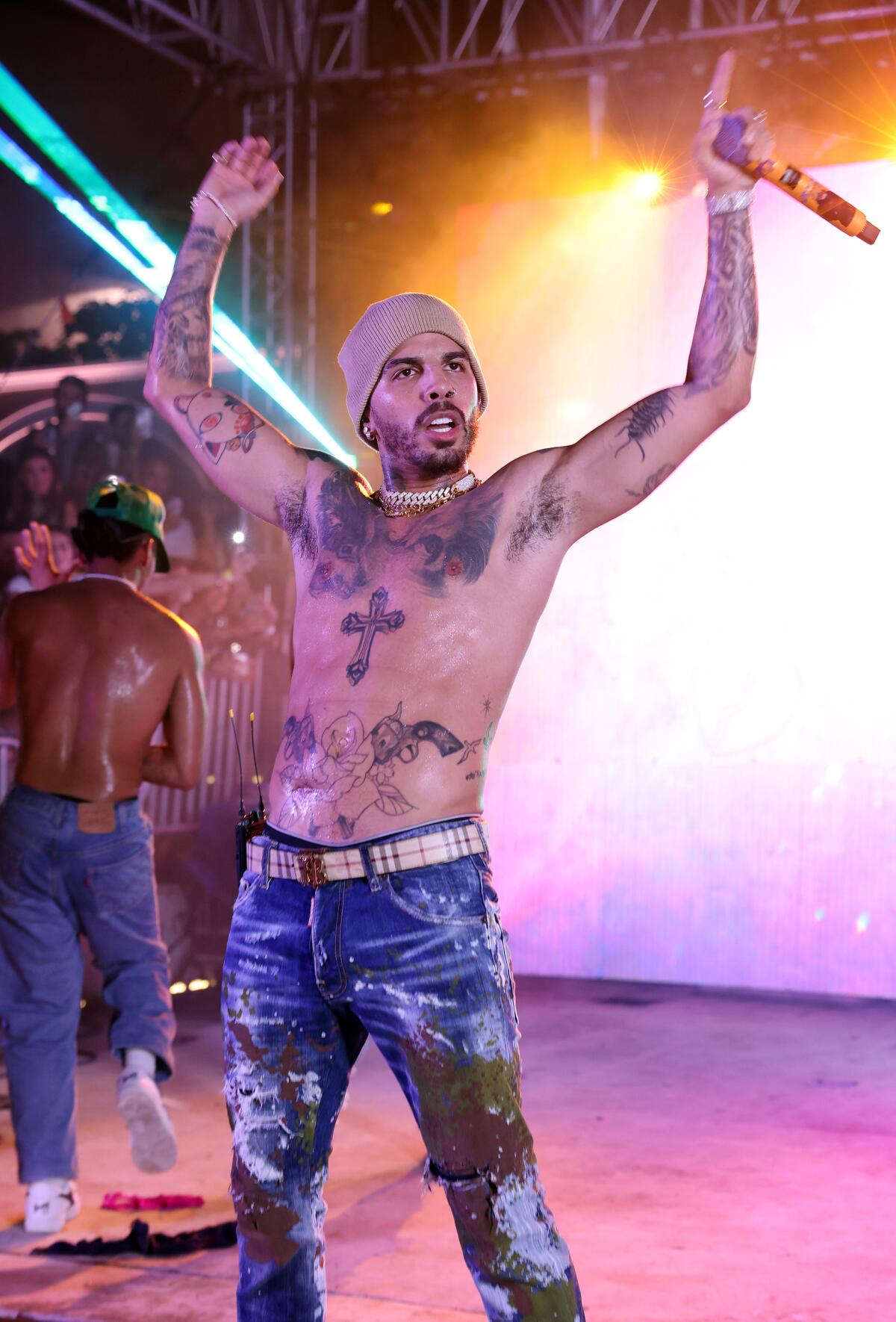
Alejandro attended the University of Puerto Rico on a soccer scholarship, and trained in Orlando, Fla. with the goal of playing on the U.S. national team. By 2014, sidelined by injuries, he had turned to recording moody trap lullabies alone in his bedroom and, at the behest of friends, began uploading them to SoundCloud.
“I was in a really dark moment, and music was my therapy,” he said. “In sports, my coaches taught me discipline. So if I was gonna do music for a living, I was gonna go hard.”
“Going hard” for Alejandro meant getting production tips from his friend Luis J. Gonzalez, now DJ-producer Mr. NaisGai, and then dropping new songs on a near-weekly basis to build streaming numbers. Through a clever scheme devised with other young trap MCs on the island — including Lyanno, Brray and Myke Towers — Alejandro and his friends amassed a wealth of streams by remixing one another’s singles.
In 2017, Alejandro signed with Duars Entertainment (which later partnered with Sony Music Entertainment), and earned endorsements from key players in reggaeton’s old school, including Plan B’s Chencho Corleone, Zion y Lennox and Nicky Jam; then, earlier this year, he was tapped by pop superstar Selena Gomez to feature on her first-ever Spanish-language EP, “Revelación.”
“Rauw knows consistency as much as he knows how to reinvent himself,” said Antonio Vazquez, head of U.S. Latin, Editorial at Spotify.

Last year, Jamaican producer Rvssian invited Alejandro to sing with one of his R&B heroes, Chris Brown. On the reggaeton/R&B track “Nostálgico,” the two tag team racy verses in English and Spanish.
“I thought, ‘Wow, I’m finally here,’” said Alejandro. But some fans soured on him because of Brown’s 2009 assault on pop superstar Rihanna, as well as abuse allegations made by actress Karrueche Tran in 2017.
“Chris and [Rihanna] are cool,” he offered, in a rare moment of discomfort. “So who am I to judge?
“But I also think about my mom, my little sister, my grandma,” he continued. “I grew up with them. Women inspire me, and I want to make songs that make women feel good, sexy and powerful.”
Released in November 2020, his full-length debut, “Afrodisíaco,” is a sensuous night cruise from reggaeton to trap/R&B, guided by Alejandro’s velvety soprano. On June’s “Vice Versa,” Alejandro croons about love, sex and intimacy in the digital age, his Caribbean romanticism suffused with elements of deep house (“Cosa Guapa,” “Desenfocao”) and with breakbeats on the Tainy-assisted “¿Cuándo Fue?”

“Me and Tainy experimented with drum and bass sounds two years ago, but it didn’t feel like the right time,” said Alejandro. “I wanted to give people time to understand me. I’m not a regular reggaeton guy. I think they’re ready for it now.”
The people, broadly speaking, were evidently more than ready for this year’s wave of electro-Latino fusions. “Todo de Ti” and Farruko’s tribal guarachero smash “Pepas” were two of the biggest Latin songs of the summer, and both have lingered on the Billboard Global 200 chart for nearly five months.
“We’re fast-approaching an era where the biggest stars in music also happen to be the best genre-blending alchemists,” said Spotify’s Vazquez, comparing Alejandro’s trajectory to that of versatile hitmakers like Bad Bunny and Camilo. “Rauw’s creative sensibility, earworm hooks and irresistible collaborations have repeatedly helped position him at the top of the charts.”
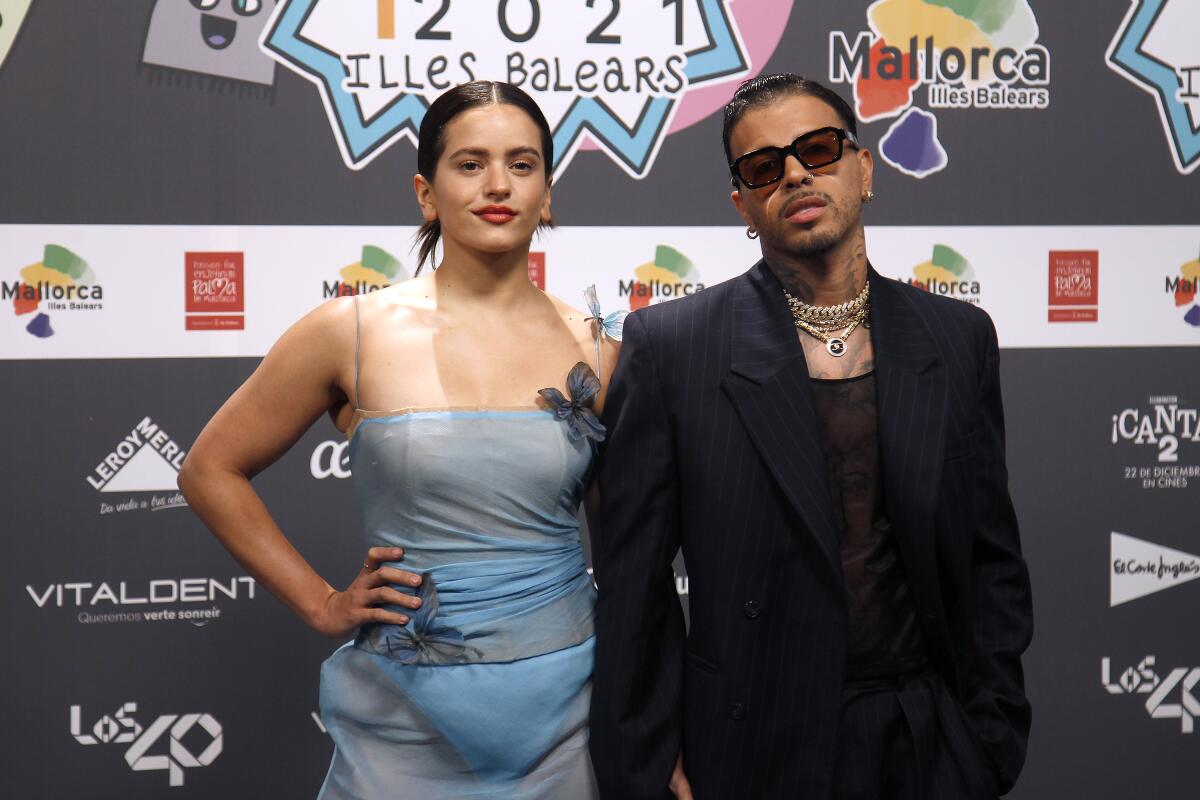
Alejandro seems to have found his spiritual match in another chameleonic artist: flamenco fusion star Rosalía. After a few months of socially distanced courtship — and an August sighting outside the Nice Guy in West Hollywood — the two posted cuddly selfies on Instagram in September. (“BlissssSSS,” wrote Rosalía in the caption.) Alejandro had been openly professing his crush on Rosalía in interviews since 2018: “She‘s the most beautiful woman there is,” he once said on Primer Impacto.
The two finally met while brainstorming in the studio for his 2020 single “Dile a Él.”
“We started sending each other mixes,” he said, explaining how snippets of Rosalía’s vocal melismas made their way into his 2021 trap-bolero, “Aquel Nap ZzZz.”
“I love her mind,” he said. “We talk about sounds, concepts, audio plug-ins. She’s very knowledgable. She’ll hear my mix and say, ‘you should change the EQ on that.’”
After Alejandro’s week in Puerto Rico, the young couple absconded to Mexico, where they lounged in a private pool and painted their faces like skulls for Day of the Dead. But vacation doesn’t come easy for Alejandro; he’s still tinkering with “Trap Cake Vol. 2,” the upcoming “sexy underground” sequel to his 2019 mixtape, which he’s releasing for “the fans who knew me from the SoundCloud days.”
It may seem strange that Alejandro waxes nostalgic for salad days spent broke, bummed out and recording trap songs in his bedroom. But now that he’s jetting across oceans to grace red carpets, and possibly winning his first Latin Grammy on Thursday, he can say they were well worth it.
“It took some time, but now that I got your attention,” he said, “let me show you what else I can do.”
More to Read
The biggest entertainment stories
Get our big stories about Hollywood, film, television, music, arts, culture and more right in your inbox as soon as they publish.
You may occasionally receive promotional content from the Los Angeles Times.

